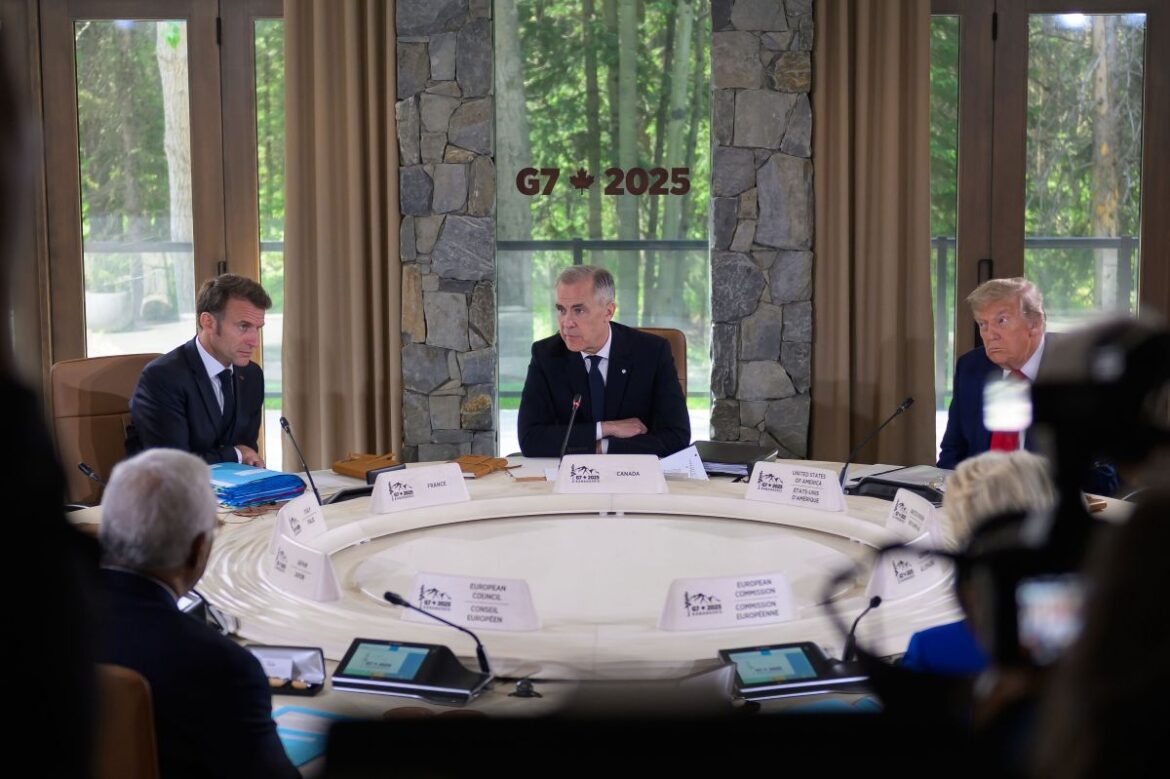Questions have surfaced over the $258,300 cost of a custom table used at the G7 summit in Kananaskis, Alberta, in June 2025. Crafted by Calgary firm Möbius Objects and procured through a competitive bidding process managed by Public Services and Procurement Canada, the table’s high price has drawn criticism from taxpayer advocacy groups. The Canadian Taxpayers Federation has questioned the fiscal prudence of the expense amid broader scrutiny of summit-related costs, which include substantial payments for event branding and website development. The government asserts that proper procurement procedures were followed and emphasizes the table’s role in facilitating critical discussions among global leaders.
Details of the Custom Table and Procurement Process
The table, specially designed and fabricated by Calgary-based Möbius Objects, was a centerpiece at the 2025 G7 summit held in Kananaskis, Alberta. Valued at $258,300, the piece was commissioned to meet specific functional and aesthetic requirements suitable for a high-profile diplomatic event. Public Services and Procurement Canada oversaw a competitive bidding process to select the supplier, with the government affirming that the process complied with all federal guidelines.
Criticism from Taxpayer Advocacy Groups
The Canadian Taxpayers Federation (CTF) has publicly criticized the cost of the table, calling into question its justification amid ongoing concerns about government spending. The CTF highlights that the expense appears disproportionate when compared with standard procurement costs for similar government furnishings. This scrutiny is part of a wider examination of expenditures related to the summit, which also includes costs for event branding and the development of an official website, both of which reportedly involved substantial financial outlays.
Government Response and Justification
In response to the criticism, government officials have defended the procurement and the expense, emphasizing the importance of the table’s design and quality in supporting productive dialogue among world leaders. Officials stress that the table was a functional necessity, crafted to meet security, size, and design specifications critical for the summit’s success. Furthermore, the government reiterates that the procurement was transparent and compliant with established procedures, underscoring accountability in the use of public funds.
Context of Summit-Related Expenditures
The G7 summit is an event of significant economic and diplomatic importance. The costs associated with hosting the summit extend beyond logistics to include elements such as security, venue preparation, and communication infrastructure. While the table has become a focal point for spending criticism, experts suggest that such expenditures, although costly, are common in international summits to ensure appropriate protocol and environment. Nevertheless, the public and watchdog groups continue to advocate for detailed reporting and justification of all costs to maintain transparency and public trust.
Ongoing Scrutiny and Future Implications
As investigations and reviews of summit-related spending continue, government agencies may face increased pressure to provide detailed audits and enhance oversight processes. The controversy surrounding the table’s cost has sparked broader conversations on fiscal responsibility and the prioritization of public resources. Observers note that how the government addresses these concerns could influence public perception and policy-making related to future large-scale event expenditures.
The $258,300 cost of the custom table at the 2025 G7 summit in Kananaskis has highlighted the complexities surrounding government expenditures on high-profile international events. While the government maintains that procurement procedures were properly followed and the table’s design was essential for facilitating diplomatic discussions, taxpayer advocacy groups have raised valid concerns about fiscal responsibility and transparency. This controversy underscores the importance of thorough oversight and clear communication regarding public spending on summit-related activities. Moving forward, increased scrutiny and comprehensive audits may be necessary to ensure accountability and maintain public trust in the management of funds for such significant events.

